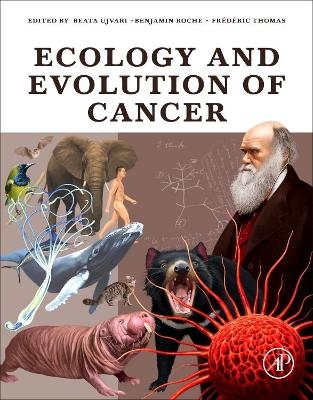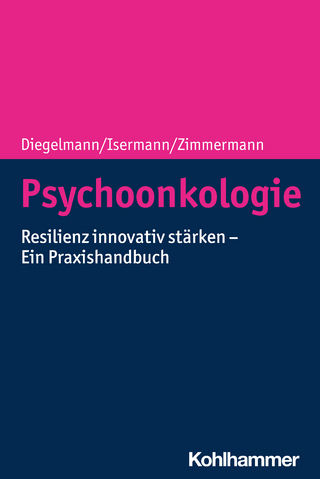
Ecology and Evolution of Cancer
Academic Press Inc (Verlag)
978-0-12-804310-3 (ISBN)
The evolutionary perspective of cancer has gained significant international recognition and interest, which is fully understandable given that somatic cellular selection and evolution are elegant explanations for carcinogenesis. Cancer is now generally accepted to be an evolutionary and ecological process with complex interactions between tumor cells and their environment sharing many similarities with organismal evolution. As a critical contribution to this field of research the book is important and relevant for the applications of evolutionary biology to understand the origin of cancers, to control neoplastic progression, and to prevent therapeutic failures.
Beata Ujvari is a Senior Research Fellow at the Centre for Integrative Ecology, Deakin University, Australia. She will take up a senior lecturer position in Bioinformatics and Genetics at the School of Life and Environmental Sciences, Deakin University from January 2017. She has been the Chair of the Comparative Oncology Special Interest Group, Cancer Research Network, University of Sydney (2012- 2014), a member of the program and organizing committee for the Sydney Cancer Conference and member of the program committee for the VetSci conference (2013-2014). As an evolutionary ecologist, her research focuses on the interaction between organisms and their environment and these effects on organismal fitness, particularly with the aim to explore the significance of genetic and epigenetic organismal responses to both macro- and micro environmental challenges. Dr Ujvari has authored more than 90 refereed journal articles, book chapters and conference papers, including multidisciplinary topics such as evolution, animal behavior, and ecology as they relate to cancer. Benjamin Roche is a researcher at the at the Centre for Ecological and Evolutionary Research on Cancer (CREEC) and at Research Institute for Development (IRD) in the UMMISCO lab (International Research Unit for Mathematical and Computational Modeling of Complex Systems). With a background in theoretical modeling and evolutionary ecology, he has authored more than 60 scientific papers in international scientific journals focusing on evolutionary ecology of infectious diseases, ecology and evolution of cancer or public health. His cancer research is focusing on projects related to the role of ecology and evolution processes in cancerous cell proliferation, with particular interests in tumor ecology, the indirect role of infectious diseases in cancer incidence through an eco-immunological perspective and Peto’s paradox (or how to identify natural resistance to cancer in wildlife animals). Frédéric Thomas is Directeur de Recherches at the Centre for Ecological and Evolutionary Research on Cancer (CREEC), and UMR CNRS (Maladies Infectieuses et Vecteurs: Ecologie, Génétique, Evolution et Contrôle), both in Montpellier, France. He has authored or co-authored more than 195 refereed journal articles (with more than 5570 citations) on topics such as cancer, disease, and evolutionary biology, and animal behaviour, as well as co-edited 11 books on biodiversity, ecology, evolution, and parasitism. He is frequently invited to present at international meetings and is Associate Editor of both the Journal of Evolutionary Medicine and Evolutionary Applications.
1. The Evolutionary Origins of Cancer and of Its Control by Immune Policing and Genetic Suppression 2. Cancer Prevalence and Etiology in Wild and Captive Animals 3. Infection and Cancer in Nature 4. Pseudohypoxia: Life at the Edge 5. The Genomic Landscape of Cancers 6. The Epigenetic Component in Cancer Evolution 7. Evolution of Cancer Defense Mechanisms Across Species 8. Coevolution of Tumor Cells and Their Microenvironment: “Niche Construction in Cancer 9. Evolutionary Perspective of Tumorigenesis and Antitumor Immunity: A Comparative Approach 10. The Response of Cancer Cell Populations to Therapies 11. Ecology of the Metastatic Process 12. Transmissible Cancer: The Evolution of Interindividual Metastasis 13. Cancer in Animals: Reciprocal Feedbacks Between Evolution of Cancer Resistance and Ecosystem Functioning 14. Applying Tools From Evolutionary Biology to Cancer Research 15. Understanding Ancient Legacies to Expose and Exploit Cancer’s Evolutionary Vulnerabilities 16. Atavism Theory—An Introductory Discourse 17. Toward an Ultimate Explanation of Intratumor Heterogeneity 18. Obstacles to the Darwinian Framework of Somatic Cancer Evolution 19. Cancer as a Disease of Homeostasis: An Angiogenesis Perspective 20. Dormancy: An Evolutionary Key Phenomenon in Cancer Development 21. Controlling Rogue Cells in Cancer and Bacterial Infections 22. Searching for a Cancer-Proof Organism: It’s the Journey That Teaches You About the Destination 23. Ecology, Evolution, and the Cancer Patient
| Erscheinungsdatum | 24.02.2017 |
|---|---|
| Verlagsort | San Diego |
| Sprache | englisch |
| Maße | 216 x 276 mm |
| Gewicht | 810 g |
| Themenwelt | Medizin / Pharmazie ► Medizinische Fachgebiete ► Onkologie |
| ISBN-10 | 0-12-804310-5 / 0128043105 |
| ISBN-13 | 978-0-12-804310-3 / 9780128043103 |
| Zustand | Neuware |
| Haben Sie eine Frage zum Produkt? |
aus dem Bereich


